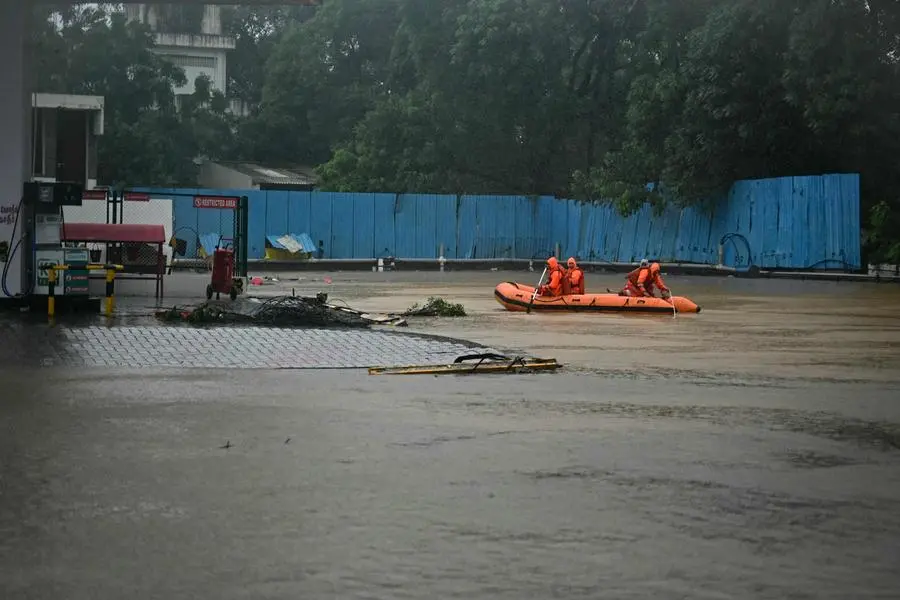PHOTO
Chest-high water surged down the streets of India's southern city Chennai on Tuesday, with eight people killed in intense floods as Cyclone Michaung made landfall on the southeast coast.
The cyclone hit the coast of Andhra Pradesh state as a "severe cyclonic storm" with winds up to 100 kilometres an hour (62 mph), the Indian Meteorological Department (IMD) said.
Cars were seen floating on raging torrents in Chennai, homes were flooded and a crocodile was spotted swimming the streets in the city.
People in some parts of the flooded city used boats to get out of their flooded neighbourhoods to the safety of government relief shelters.
The IMD warned of "exceptionally heavy rainfall" in some areas.
"We are facing the worst storm in recent memory," Tamil Nadu state chief minister M.K. Stalin said in a statement late Monday.
Police said on Tuesday eight people had been killed in Chennai, the state capital of Tamil Nadu on India's east coast.
They included some who drowned as well as one person hit by a falling tree, another electrocuted by live wires in the water and one crushed by a falling wall.
Trees were uprooted and vehicles swept away by the heavy rains, according to images posted on social media.
Apple iPhone manufacturers Foxconn and Pegatron and automaker Hyundai suspended their operations in Tamil Nadu due to the storm, local media reported.
- Emergency response -
The cyclone hit India's southeast coast near the town of Bapatla, on the 300-kilometre (185-mile) stretch between Nellore and Machilipatnam.
Hundreds of people from coastal villages in the neighbouring state of Andhra Pradesh have moved inland, with emergency rescue teams deployed to deal with the aftermath of the cyclone's landfall, according to local media.
Sea surges of waves up to 1.5 metres (nearly five feet) above normal tide levels are expected, the IMD said.
The department also issued a warning to coastal fishing communities to stay away from the Bay of Bengal until late Wednesday because of the "very high sea condition".
The IMD said damage was expected along the coast including broken trees, power lines and communication infrastructure, as well as flash floods.
Home Minister Amit Shah said the government was "braced to provide all the necessary assistance to Andhra Pradesh", with rescue teams deployed and more "on standby to mobilise as needed".
The cyclone is expected to weaken late Tuesday.
Scientists have warned that storms are becoming more powerful as the world gets warmer with climate change.
Cyclones -- the equivalent of hurricanes in the North Atlantic or typhoons in the Northwest Pacific -- are a regular and deadly menace on coasts in the northern Indian Ocean, where tens of millions of people live.





















